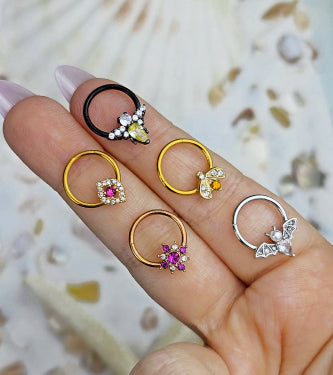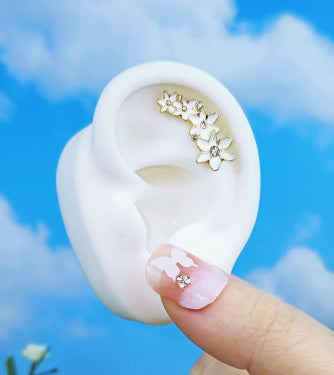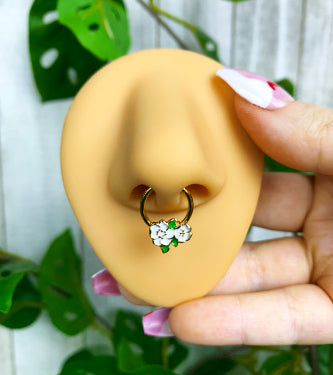As we become more ecologically conscious, as well as more proactive concerning our own health and wellness, Americans and others around the world are discovering the benefits of natural body jewelry. And one of the best organic materials out there for stretched piercings is, of course, wood.
Aside from being lighter weight than metals, and needing far less processing than plastics, wooden plugs are also healthier for a stretched piercing than most other materials. Because the wood is porous even after being sanded or polished, it allows the stretched skin or “fistula” to breath, which then in turn eliminates foul odors and lessens discharge. And beyond that, wood comes in such a variety of tones and densities, that the style variations are almost endless.
Because most natural wood products are polished rather than coated, they can be re-polished with natural beeswax or organic oils like jojoba if they begin to loose their luster, allowing them to last for years of wear. And older pieces or those that are no longer worn can be painted, used as garden decorations or for crafts, or even re-purposed into other jewelry, adding to their sustainability.
Some of the gorgeous organic woods commonly used for plugs, tapers, or stirrups: black wood, coconut wood, ebony wood, blood wood, cherry wood, sawo wood, iron wood, crocodile wood, palm wood, olive wood, and sono wood.



